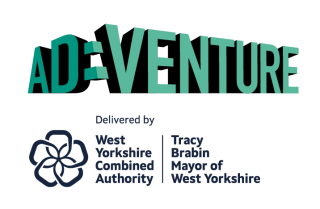
How to Run a Successful Networking Event: Do’s, Don’ts, and Top Tips
Aug 05
Hosting a networking event is a fantastic way to bring professionals together, foster new connections, and create opportunities for collaboration. In regions like Yorkshire, where the business community is vibrant and diverse, a well-executed networking event can be a game-changer for everyone involved. Whether you’re planning an intimate gathering or a large-scale event, there are key strategies to ensure it’s successful. Here’s how to run a networking event that leaves a lasting impact.
The Benefits of Hosting a Networking Event
Running a networking event offers numerous benefits, both for the organiser and the participants. For businesses, it’s an opportunity to showcase your brand, connect with potential clients, and establish yourself as a leader in your industry. For participants, it’s a chance to meet like-minded professionals, exchange ideas, and build relationships that could lead to future opportunities.
As Reid Hoffman, co-founder of LinkedIn, wisely noted, “No matter how brilliant your mind or strategy, if you’re playing a solo game, you’ll always lose out to a team.” Networking events are your opportunity to build that team, bringing together people whose combined strengths can lead to greater success.

DO’S AND DON’TS
Do: Plan with Purpose
- Every successful event starts with a clear purpose. Know what you want to achieve—whether it’s fostering new business relationships, promoting a cause, or simply bringing a community together. Tailor the event’s format, agenda, and activities to align with this goal.
Don’t: Leave the Details to the Last Minute
- Attention to detail is crucial. From selecting the right venue and sending out timely invitations to organising the flow of activities, every detail matters. Last-minute planning often leads to avoidable issues that can detract from the event’s success.
Do: Create a Welcoming Atmosphere
- Make sure your event is accessible and inclusive. A warm, friendly atmosphere encourages attendees to engage and interact more openly. Consider things like the layout of the room, the availability of refreshments, and the clarity of instructions or signage.
Don’t: Overlook the Importance of Icebreakers
- Starting conversations can be daunting for some attendees, especially first-time networkers. Incorporate icebreakers or structured networking activities to help break down barriers and make it easier for people to connect.
Do: Facilitate Meaningful Connections
- Networking is most effective when it leads to genuine relationships. Encourage meaningful interactions by organising activities that go beyond superficial exchanges. This could be in the form of roundtable discussions, expert panels, or themed networking sessions.
Don’t: Focus Solely on Your Own Agenda
- While promoting your business or cause is important, a networking event should primarily serve the interests of your attendees. Ensure that the event provides value for everyone involved, whether through learning opportunities, new connections, or access to resources.
Do: Follow Up with Attendees
- The event doesn’t end when the last attendee leaves. Follow up with participants to thank them for attending, share any relevant information or resources, and encourage them to stay connected. This follow-up can strengthen the relationships formed at the event.
Don’t: Forget to Gather Feedback
- To improve future events, gather feedback from attendees. Ask what they enjoyed, what could be improved, and any suggestions they have for future events. This input is invaluable for refining your approach and ensuring your events continue to deliver value.
Do: Leverage Social Media
- Promote your event on social media before, during, and after it takes place. Encourage attendees to share their experiences and connect online. This not only increases the visibility of your event but also helps build a sense of community.
Don’t: Ignore the Importance of Timing
- The timing of your event can significantly impact attendance and engagement. Consider factors such as the day of the week, time of day, and any competing events. The right timing can make all the difference in ensuring a strong turnout.

Top Ten Tips for a Successful Networking Event
- Define Your Objectives: Know what you want to achieve and tailor your event accordingly.
- Choose the Right Venue: Select a location that is convenient, accessible, and suited to the size and style of your event.
- Invite a Diverse Group: Ensure a mix of attendees to foster a range of conversations and connections.
- Promote the Event Widely: Use multiple channels to promote your event and ensure a good turnout.
- Prepare Icebreakers: Help attendees start conversations and engage with each other.
- Facilitate Structured Networking: Consider adding formal networking segments to help attendees connect more effectively.
- Engage a Speaker or Host: A well-chosen speaker or host can add value and keep the event flowing smoothly.
- Provide Refreshments: Ensure there are enough refreshments to keep attendees comfortable and satisfied.
- Create Takeaways: Offer materials or resources that attendees can take away, keeping your event top of mind.
- Follow Up: Send a thank-you email and encourage continued engagement after the event.
In the words of motivational speaker Jim Rohn, “Your network is your net worth.” At The Yorkshire Mafia, we believe in the power of bringing people together, not just to exchange business cards, but to build relationships that lead to mutual success.
So, as you plan your next event, remember to focus on creating value, fostering connections, and building a community that supports and grows together.






